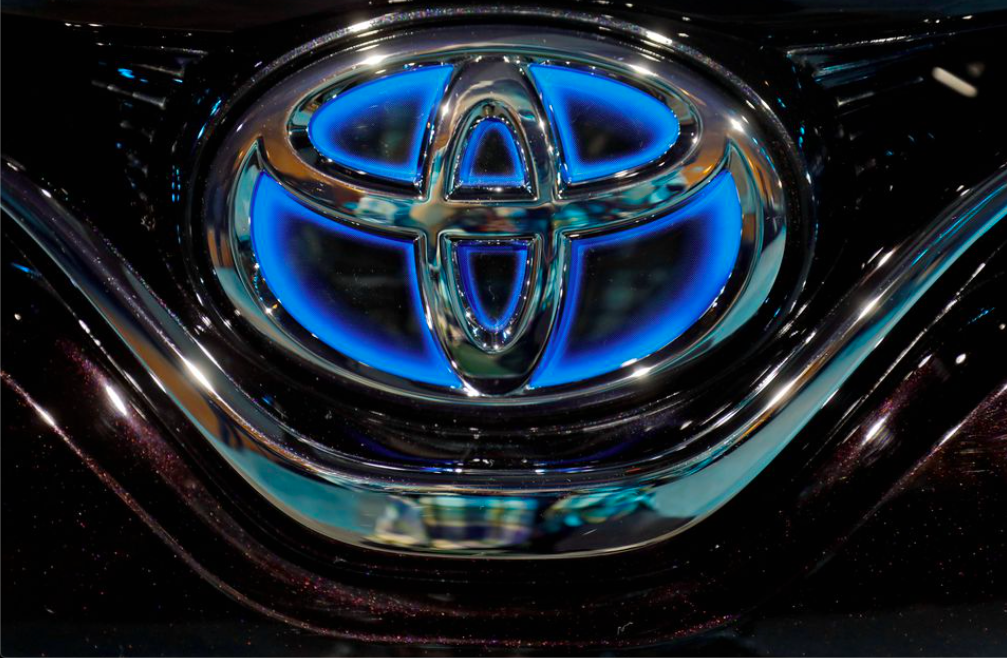TOKYO, Oct 20 (Reuters) – Japan’s Nippon Steel Corp is suing customer Toyota Motor Corp (7203.T) to stop it manufacturing and selling vehicles that contain specialised steel made by rival supplier Baoshan Iron & Steel Co Ltd (Baosteel) of China, which it is also suing.
It highlights the high stakes for materials producers as technology transforms the auto industry and comes as Japan is increasingly concerned about safeguarding supply chains and intellectual property.
Here is what’s behind the lawsuit and why it is important:
WHAT IS THE SUIT ABOUT?
Nippon Steel is suing Toyota and Baosteel (600019.SS) in a Tokyo court for patent infringement, seeking 20 billion yen ($176 million) in damages from each. It is also trying to stop Toyota from selling and manufacturing vehicles in Japan that use Baosteel’s non-oriented magnetic steel sheets.
Nippon Steel believes the sale and use of the Baosteel sheets in Japan violates its Japanese patent claims on composition, thickness, crystal grain diameter and magnetic properties, according to a company spokesperson.
Toyota said it confirmed there was no infringement before concluding its contract with Baosteel.
Baosteel said it did not agree with Nippon Steel’s claims and it would “firmly” defend its rights and interests.
WHY IS THE STEEL IMPORTANT?
Non-oriented magnetic steel is specialised metal that improves the performance of motors in hybrid electric and electric vehicles, according to Nippon Steel.
The company has supplied electromagnetic steel to Toyota for the Prius hybrid for more than two decades.
Japan’s steelmakers are focused on advanced niche markets, such as specialised automobile components, where they have so far had an edge against bigger Chinese rivals.
But Toyota’s supply deal with Baosteel suggests Chinese producers may be catching up. Demand for specialised steel is expected to grow as electric vehicles transform the auto industry.
WHAT ABOUT NIPPON STEEL’S PAST LAWSUIT?
Nippon Steel sued South Korea’s POSCO (005490.KS) for more than $1 billion in 2012, alleging POSCO stole its technology for making another type of magnetic steel sheets, which are used in transformers.
POSCO later paid around $250 million to settle.
The Chinese steelmaker in that incident was also Baosteel, according to a person familiar with the matter.
When contacted by Reuters, Baosteel declined to comment on the POSCO suit.
IMPACT ON TOYOTA?
“The volume of electrified vehicles is increasing and there is a need to secure the volume of the parts,” a Toyota spokesperson said. He declined to say how many models could be affected by an injunction on Baosteel supplies.
IMPACT ON BAOSTEEL?
Baosteel said it is currently unable to assess the impact on its profits from the lawsuit.
Nippon Steel may have more to lose by taking on key customer Toyota, which could try to buy more from rivals outside Japan to avoid future supply-chain disruption.
Nippon Steel is more dependent on Toyota than the automaker is on the steelmaker, according to ratings agency Moody’s.
However, UBS analyst Harunobu Goroh doesn’t see any impact on the fundamental relationship between the two Japanese companies, adding they will remain strategic partners.
The spat coincides with deepening concern in Japan about the vulnerability of industrial supply chains both to U.S.-China trade frictions and the semiconductors shortage.
Japan is also worried about alleged technology theft by China. New Prime Minister Fumio Kishida has created a new post in his cabinet, minister for economic security, to tackle these issues.
China has repeatedly said it respects intellectual property rights.
“This is a private sector litigation and I shouldn’t comment,” Matsuno told reporters on Friday.
($1 = 114.3400 yen)











